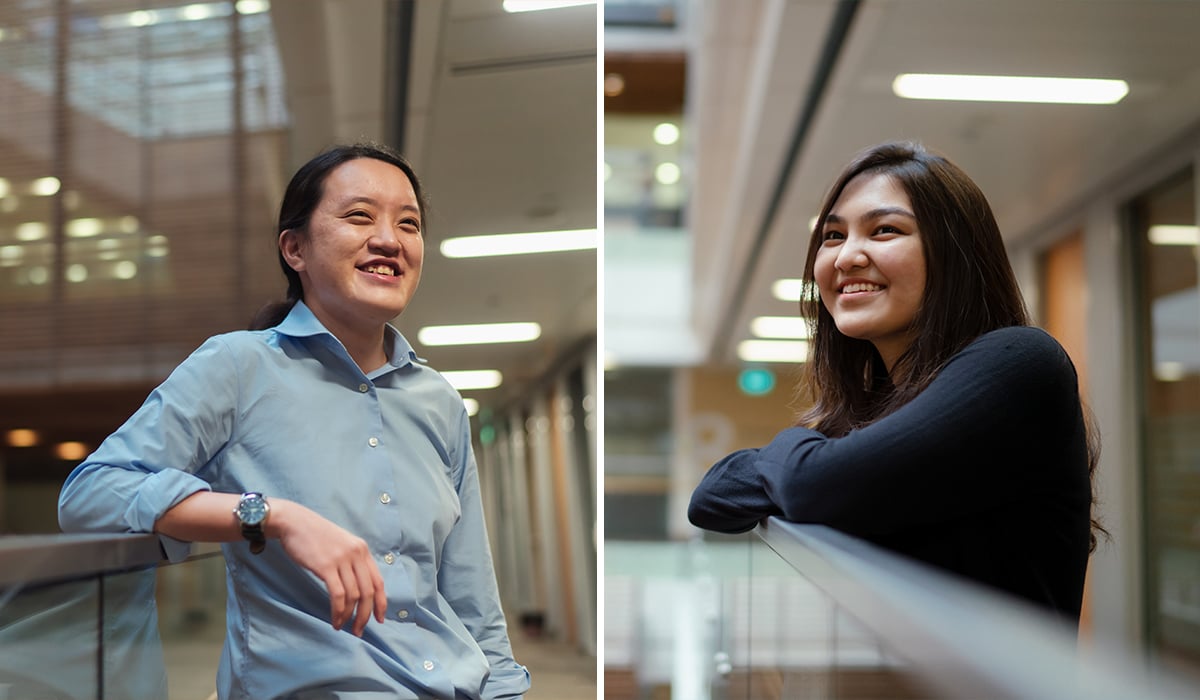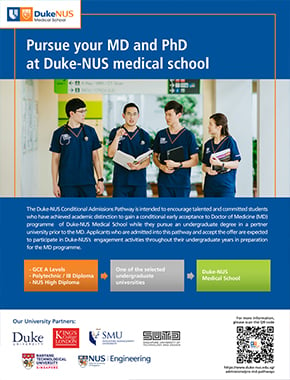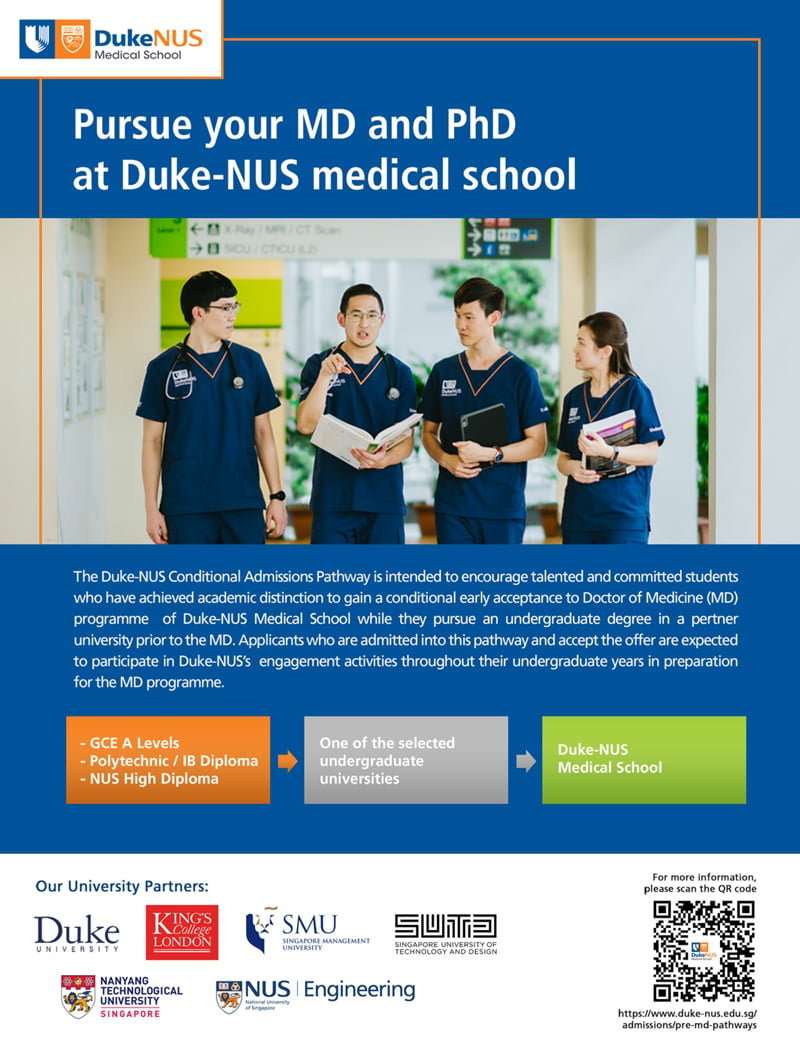Left: Jazreel Low was on the NUS Engineering and Medicine Track that is jointly offered by NUS and Duke-NUS. She recently graduated with an engineering degree and is currently a first-year medical student.
Right: Suzanne-Kae Rocknathan is on the SUTD-Duke-NUS Special Track. She is currently a full-time undergraduate student pursuing a Bachelor of Engineering with a specialisation in Engineering Systems and Design (ESD).
Since its establishment in 2005, Duke-NUS Medical School has contributed significantly to Singapore’s healthcare system. It conducts cutting-edge medical research that enhances the nation’s reputation as a leading biomedical hub and offers a unique curriculum that nurtures future-ready clinicians.
In addition to accepting graduates after they complete their first degree, Duke-NUS also provides conditional admissions schemes for pre-university students looking to pursue graduate-entry medicine.
Twenty-three-year-old Jazreel Low, for one, was on the NUS Engineering and Medicine Track. After graduating with a Bachelor of Engineering degree from NUS, she started her Doctor of Medicine degree at Duke-NUS earlier this year. Jazreel, now a first-year medical student, is among the first cohort of students admitted to Duke-NUS under the conditional admissions scheme.
Twenty-two-year-old Suzanne-Kae Rocknathan is in her final year at the Singapore University of Technology and Design (SUTD), where she is pursuing a Bachelor of Engineering, specialising in Engineering Systems and Design (ESD). Suzanne-Kae is on the SUTD-Duke-NUS Special Track, which has a more design-focused engineering curriculum.
BrightSparks had a chat with Jazreel and Suzanne-Kae to find out more about the academic tracks offered by Duke-NUS and the respective partner institutions as well as their career aspirations.
Studying for consecutive degrees would have been a challenge for most people. What made you consider your respective tracks?
Jazreel: I wanted to study both Engineering and Medicine and I thought that this track would give me the best of both worlds. I think engineering and medicine have a lot of similarities in the way they both use science for practical application — creating innovations and helping patients respectively. The idea of being both an engineer and a clinician was very attractive to me, as it would give me interdisciplinary skillsets not only to treat patients, but also to innovate technologies that can meet patients’ needs.
Suzanne-Kae: My interest in the medical profession began with respect and admiration as I witnessed people, myself included, being helped and even cured. That admiration grew into a desire to be able to do that for others as well. I’ve decided to embark on this multidisciplinary track as I would be able to utilise technology to supplement my medical profession. I love the idea of being part of the solution to structural and systemic challenges in the healthcare sector.
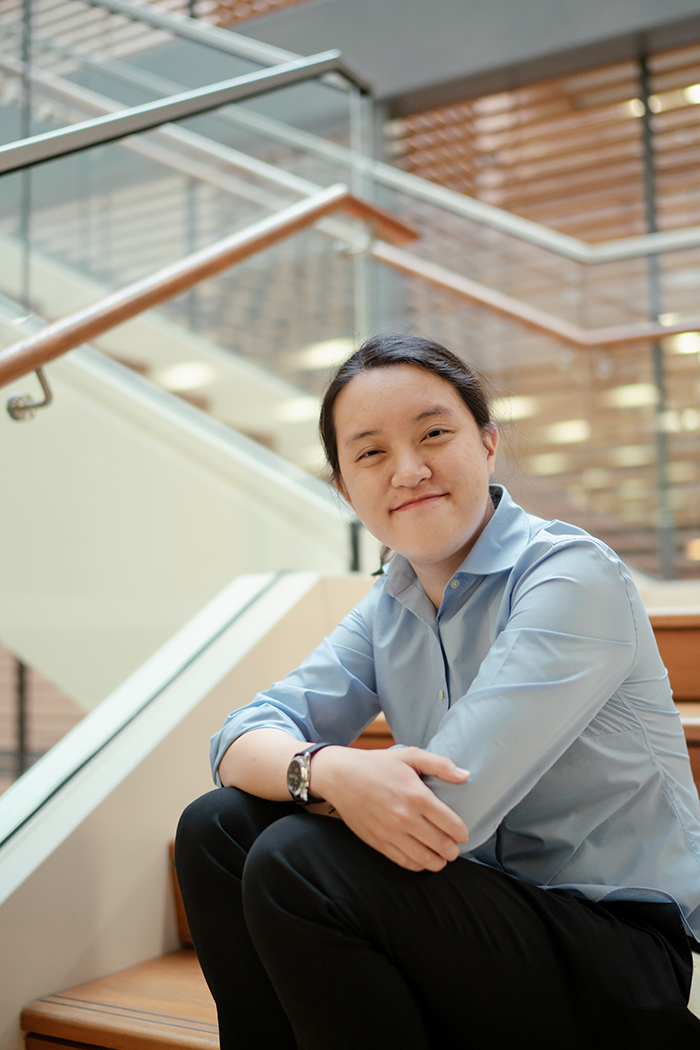
Jazreel Low
Jazreel, you have recently graduated with an engineering degree. How has the academic experience at NUS shaped you?
Jazreel: It opened my eyes to different ways of critical reasoning and innovation, and I am better able to appreciate how user-centric healthcare technologies and community health solutions can be reiteratively and rigorously innovated. It also gave me experience working with people from different backgrounds, using innovation tools and processes to interview users, brainstorm and develop solutions or prototypes that can solve real-world problems. These experiences helped me hone transferable skills, like critical reasoning and communication, and gave me the confidence to deal with uncertain and ill-defined problems.
You are now a medical student. How was the transition from a technical discipline to something that is quite different?
Jazreel: The transition initially was quite difficult, especially as I am currently still learning the basic foundational sciences. I had to shift my mindset from an engineering point of view to a more scientific or clinical one, shifting from asking ‘How can we solve this problem?’ to ‘Why is there this problem in the first place?’
How has the School helped with the transition?
Jazreel: The faculty and admin staff have been very nice, working very hard to provide positive learning experiences. The admissions office also constantly kept in contact with me during my undergraduate years, actively guiding and notifying me of learning opportunities, for which I was very grateful.
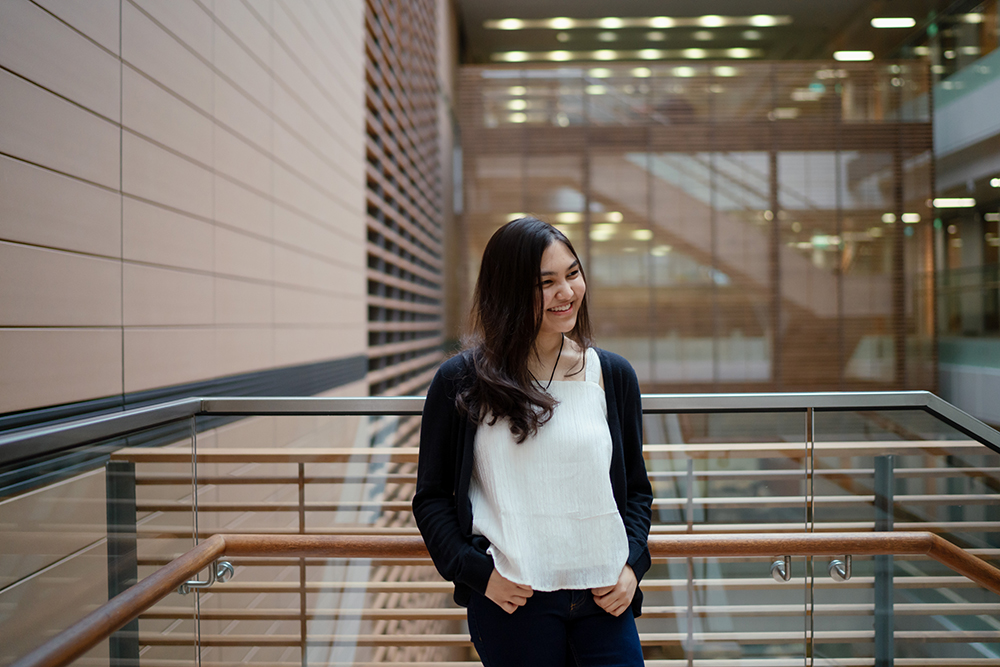
Suzanne-Kae Rocknathan
Suzanne-Kae, you are also pursuing Engineering, but with a specialisation in Engineering Systems and Design (ESD). Tell us more about your academic journey so far.
Suzanne-Kae: I’m currently studying at SUTD, and its project-centric programme provides ample opportunities for us to brainstorm, explore solutions, solve problems, innovate and create. The ESD specialisation equips us with skills such as data analytics, optimisation, predictive modelling and decision analytics. I see these skills potentially being implemented in hospital operations, healthcare systems and policy-making.
How are you coping with the curriculum so far?
Suzanne-Kae: As an undergraduate student with a rather project-heavy curriculum, I’m learning to better manage my time. Apart from time management and keeping up with my studies, I believe it is very important to effectively cope with stress and take care of my mental health. I think these are habits and practices that will help me cope academically and mentally with the rigorous curriculum of medical school.
Both of you will possess a unique set of skills upon graduation. What do you hope to achieve in your career?
Jazreel: A clinician-scientist and an innovator. I hope to be a doctor who can connect with patients and positively impact their lives. I also hope to be someone who can connect both engineers and doctors to innovate and design new technologies to improve healthcare.
Suzanne-Kae: My dream job is to be a paediatrician as I love interacting with and caring for children. While practising as a clinician, I also hope to contribute to healthcare innovation in paediatric medicine.
What qualities do you think are required for somebody to excel in a multidisciplinary track?
Suzanne-Kae: Primarily, I would say that you need to have a good learning attitude. Be willing to work hard, ask questions and be bold in broadening your learning scope. As you will be working with people of varying disciplines, you need to be an excellent team player — to take up leadership when necessary and exercise initiative as a team member.
What would you say to convince someone to choose Duke-NUS?
Jazreel: You’ll get a multi-faceted learning experience. The students here are from a diverse range of science and arts backgrounds, and also from many different countries. Everyone has something different to contribute to discussions and brings a unique perspective/skillset to the table. The clinicians and researchers who teach us are all very accomplished in their own fields and constantly encourage us to ask questions.

